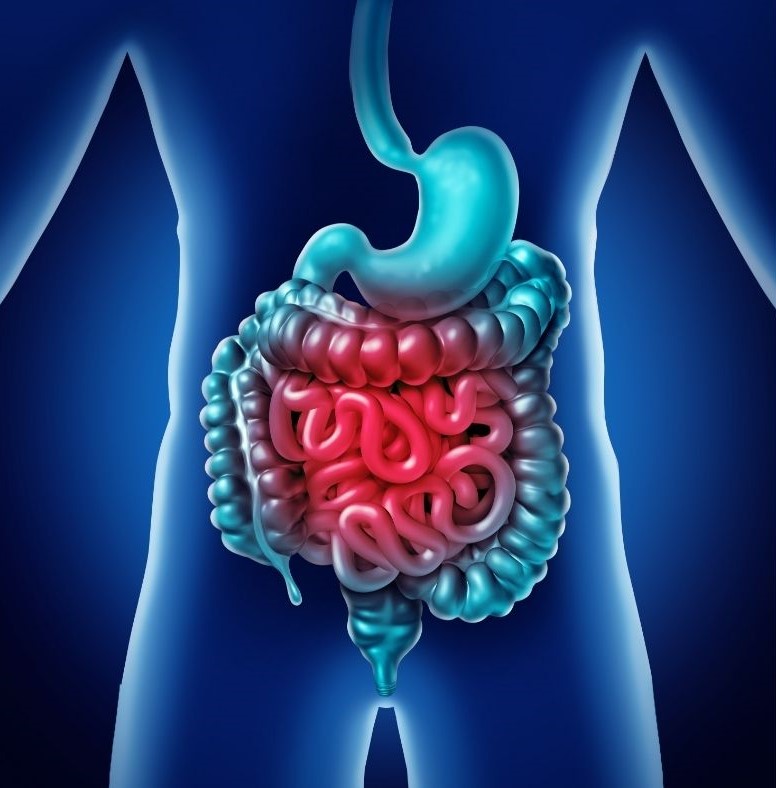Your Gut-Mood Link
11th May 2021
You have two brains, both with a vital role in the function and well-being of your mind and body. The brain in your head deals with thinking, processing, and directing your nervous system to make your body function.
Your second brain is in your digestive system, containing elements of your nervous system, mood chemicals, and thousands of billions of friendly microbes that keep you healthy, collectively called the microbiota. All living organisms, each with its own genes, are collectively called the microbiome, forming an ecosystem within your body.
Microbes inhabit most of your body, but the gut (gastrointestinal tract) bugs are particularly prolific. Before you say 'ugh' and stop reading, do continue, because you can't live without them. They are essential for your mental health, mood, digestive calm and overall well-being.
You can experience the link between your gut and mood. Do you get a 'gut feeling' about something that's not right? When you're nervous, do you get butterflies in your tummy? When you have a shock, doesn't it make you want to go to the loo? Your gut and head brains are signalling each other that you're not ok.
Studies show that an unhealthy microbiome (second brain) can make us feel low, anxious, sad and depressed. Similarly, when feeling down, our head brain can impair the functioning of our gut, causing digestive issues. Both brains produce serotonin, our feel-good hormone and body clock control. If these are negatively affected, we can feel mentally, emotionally and digestively awful, and we may have poor-quality sleep.
The gut and brain also link with our immune system. Studies show that microbiome dysfunction is associated with autoimmune diseases such as diabetes, rheumatoid arthritis, multiple sclerosis, psoriasis, and more. Many experts in this field suggest a significant diet and lifestyle change to ease these conditions.
Here's how to help increase your healthy bacteria, reduce enemy bugs and keep both your brains healthy.
Negative
Antibiotics don't distinguish between good and bad bacteria, so they kill both. If you have to take them, increase foods containing probiotics - see below.
Processed food, trans fats, refined sugar and artificial sweeteners all cause inflammation.
Reduce alcohol consumption.
Try to reduce stress - difficult during these challenging times - but try, even a little.
Positive
Sleep well so the beneficial bugs can rest, revive and regenerate.
Exercise helps to tone up both brains.
Eat foods for beneficial microbes and brain health:
Antioxidant-rich foods: Especially fruits and vegetables.
Omega-3 fats: Good for the brain and overall health: oily fish, flax seeds, chia seeds, walnuts, navy (haricot) beans, Brussels sprouts, avocados, spinach, red lentils, tofu, oysters.
High-fibre foods: Bacteria digest and thrive on these: whole grains, beans, lentils, legumes, nuts, seeds, fruits and vegetables.
Fermented foods: Contain healthy microbes: live yoghurt, kefir, sauerkraut, cheese, sourdough.
Polyphenol-rich foods: Polyphenols are natural plant chemicals that create healthy bacteria: cocoa, green tea, coffee, olive oil, herbs and spices, berries, nuts, flaxseeds.
Tryptophan-rich foods: Tryptophan is an amino acid that boosts serotonin production (feel-good and better-sleep hormone): turkey, chicken, canned tuna, eggs, cheese, oats, nuts, seeds.
Water: drink more than you usually do.
So, nurture your in-house bugs to keep your spirits up during these challenging times. Let me know how you get on.
Copyright © 2021 Brenda Martin





